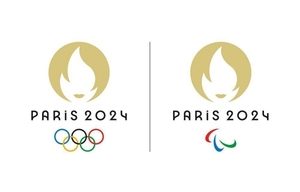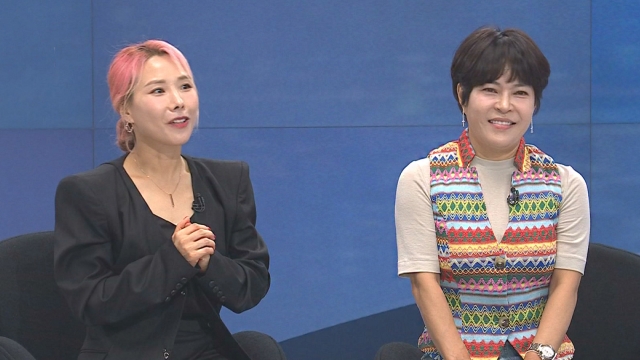
TXT And Jonas Brothers Drop Remix Version Of “Do It Like That”
2023년 07월 19일
BLACKPINK’s Rosé Has Fans Alarmed After Recent Photos Show Her Looking Shockingly Thin
2023년 07월 19일(Seong Sang-min’s Cultural Reversal) The ongoing film festival crisis, what kind of rebuilding is needed?
[ad_1]
The crisis theory about Korean films, which has been slowly spreading since the end of 2022, has mainly focused on the seriously sluggish box office performance of Korean films. However, the crisis is not limited to individual film works. From large film festivals like Jeonju and Busan to small film festivals like Indie Forum and Wonju Rooftop Film Festival, film festivals that were thought to recover naturally after COVID-19 is over are also facing countless crises and limitations.
Of course, in detail, the nature of the controversy varies depending on the scale of the film festival. Many of the issues raised by large-scale film festivals are of a strong nature of controversy over a kind of power initiative over the organization of film festivals and democracy at the level of operation. The first event that sparked gossip was the Jeonju International Film Festival. On December 15, 2022, it was controversial that Min Seong-wook, who was then the deputy executive chairman of the film festival, and actor Jung Jun-ho were jointly commissioned in the personnel of the new executive chairman of the film festival.
As can be guessed from the fact that Min Seong-wook was originally a deputy executive chairman, he is a kind of person from inside the film festival who has been with the film festival organization since 2000 when the film festival was first launched. The point of the problem was Jung Joon-ho. In the past, there have been cases where actors-turned-filmmakers such as Kang Soo-yeon and Bang Eun-jin have taken the head of film festivals or regional film committees. has not been However, questions about Jung Jun-ho’s appointment as co-executive chairman grew more and more in that he had never taken any steps that could be linked to the operation of the film festival beyond his acting career. In addition, there was no particular movement related to independent films or art films that Jung Joon-ho mainly handles at film festivals.
Afterwards, it became known that Jeonju Mayor Woo Beom-gi was actively involved in the appointment of Jeong Jun-ho as the executive chairman, and the controversy continued for a while. Actor Kwon Hae-hyo and former executive director Min Byeong-rok, who were originally assigned as filmmakers at the Jeonju International Film Festival, strongly objected to Jung Joon-ho’s appointment as executive chairman and resigned. The Jeonju City Council also debated whether the Jeonju Mayor’s intervention was appropriate. Prior to the opening of the film festival, through several official press conferences at the film festival, Jung Jun-ho emphasized that he would try to wash away the concerns inflicted on him. I had no choice but to Fortunately, this year’s Jeonju International Film Festival ended without major problems, but the question of whether the internal operation of the film festival was appropriate is still unresolved. There are no scheduled discussions or meetings for internal diagnosis.

Jeonju, Busan, Crisis of film festival democracy erupting at large-scale film festivals in 2023
However, on May 9, shortly after the Jeonju International Film Festival closed, a controversy arose at the Busan International Film Festival this time. At the Busan International Film Festival Extraordinary General Assembly, a new position called ‘Chief Steering Committee’ was newly established, and Cho Jong-guk, former secretary general of the Film Promotion Committee, was appointed as the first steering committee chairman. Lee Yong-kwan, director of the Busan International Film Festival, dismissed it as nothing more than a reorganization of the position to share duties by creating a position in charge of office and accounting practices through an interview with the Busan Ilbo, but the fact that it is a very unusual position has not changed. In addition, the fact that Cho Jong-guk, chairman of the steering committee, was classified as the closest aide to Lee Yong-gwan, director of the Busan International Film Festival, not only during his university days but also from the early days of the 1996 Busan International Film Festival, sparked controversy that he was privately organizing the film festival.
Since then, the Busan International Film Festival has been in a situation where countless controversies continue to bite the tail after tail to the extent that it is difficult to guess that the film festival will be held normally. On May 11, two days after Cho Jong-guk took office as the chairman of the steering committee, Executive Officer Huh Moon-young publicly expressed his resignation. Although Heo Moon-young did not clearly state the reason for his resignation, there was a constant story that it was of a protest nature against Chairman Lee Yong-gwan’s unilateral establishment of the position of operating chairman and appointment of an aide. As the problem did not subside, Chairman Lee Yong-kwan also announced that he would consider resigning after this year’s film festival, saying he would take responsibility for the controversy, but this remark rather accelerated the controversy. In the local film industry, including the Busan Independent Film Association, a statement demanding that Chairman Lee Yong-kwan and Steering Committee Chairman Cho Jong-guk take responsibility for the confusion was also released. At the temporary board meeting held on May 25, a conclusion was reached recommending the resignation of the steering committee chairman Cho Jong-guk and the return of executive chairman Huh Moon-young.

In this situation, the problem has spread to another phase. On May 31st, Ilgan Sports reported exclusively that Executive Chairman Huh Moon-young had sexually assaulted film festival staff for several years. It was to inform the story that the issue was reported and legal counseling was received through the ‘Korean Film Gender Equality Center Deunden’ (hereinafter referred to as Deunden), which was established as a gender equality organization in the film industry and a public-private partnership. The conflict between Lee Yong-gwan and Heo Moon-yeong began to emerge as an incident that required a fundamental reexamination of the Busan International Film Festival organization itself. The board of directors, which originally called for Heo Moon-young’s speedy return, held an extraordinary meeting again on June 2 to accept Heo Moon-young’s resignation. However, there was no talk about what kind of position or follow-up action would be taken on the sexual assault issue of Heo Moon-young, in a situation where investigations and victim relief procedures for the issue were already in progress through media reports as well as press reports.
Afterwards, the firm sent a recommendation to the film festival pointing out that this type of announcement could lead to secondary harm, but the film festival is still not publicly revealing its position, and Daily Sports reported exclusively on June 8. and it was known The film festival decided to prepare a meeting to discuss the establishment and composition of the innovation committee in order to rectify the situation, but the Busan film industry announced early on that it would not attend the meeting in that the board of directors, which is the root of the problem, is preparing the innovation committee. Lameness, such as being postponed, continues.
Indie Forum, Indie Documentary Festival, Wonju Rooftop Film Festival, small film festivals withering away
If the Pusan International Film Festival and the Jeonju International Film Festival are facing problems raised by the issue of power and democracy at the level of management within the film festival, smaller film festivals are facing other problems. It fell into a difficult situation to secure the minimum power source required for the continuous operation of the film festival. Examples include the Indie Documentary Festival, which has been suspended indefinitely after the event in 2020, and the Indie Forum Film Festival, which stopped holding regular film festivals after the event in 2021. The Indie Documentary Festival, held since 2001, was the only event in Korea that claimed to be a film festival centered on ‘independent documentaries’. The Indie Forum was a small film festival that had significance in that it was an independent film festival that non-mainstream filmmakers independently created since 1996, much earlier than the Seoul Independent Film Festival, a film festival that symbolizes Korean independent films.
Before COVID-19, it has been said that both film festivals have not been easy to operate in recent years, but the epidemic of COVID-19 seems to have dealt a greater blow to the continued operation of the film festival. After completing the film festival on a much smaller scale than usual by complying with the government’s Corona-19 regulations as much as possible in 2020, the Indie Documentary Festival will be held as a ‘fundamental foundation to have a physical foundation and new power to sustain the film festival in a rapidly changing environment such as a pandemic’. A change is needed,’ so it issued a notice to temporarily suspend the film festival and the operation of the secretariat. However, the ‘provisional’ continues until 2023. Although the film festival was not completely disbanded, many people gradually realized that it was impossible to continue the festival again. In order to provide some breathing space in this situation, at the end of March this year, the ‘Twinkle Documentary Festival’ led by independent documentary directors was held, but it was not guaranteed that it would be held continuously. The Indie Forum also stopped hosting the film festival in 2022 after the main film festival in 2021, and instead held monthly screenings for a while, but even that was stopped in 2023.
In a situation where the old independent film festivals are failing to find a new and sustainable source of power, film festivals that pledge to become a new source of power are still creaking due to the limitations of outdated local government governance. The Wonju Rooftop Film Festival, which was created by those who have engaged in various visual media activities such as ‘Wonju Visual Media Center All’ in Wonju, which was first held in 2017, is preparing for this year’s event very hard. This is because the Gangwon Film Commission could not apply for a film festival support project in Gangwon-do due to Wonju City’s non-cooperation. In order to apply for the project, documents must be submitted to prove that each film festival is receiving budget support from the local government in Gangwon-do. However, Wonju City did not issue this document. The city of Wonju stated the reason for disapproval in an official document for reasons that are difficult to understand, such as requesting the Wonju Visual Media Center, which is a co-host of the festival, to use its own cinema located inside the center.

It was a film festival that had been carried out cooperatively with Wonju City until 2022 without major problems, but suddenly Wonju City’s attitude changed. Regarding this, the film festival side did not explicitly reveal the reason, but many filmmakers are pointing out the replacement of Wonju Mayor in the 2022 local election. After Mayor Won Chang-mook of the Democratic Party, who had served as Mayor of Wonju for more than 10 years, did not run for a third consecutive term, the newly elected Mayor Won Kang-soo of People’s Power overturned all cultural policies from the root in the process of overturning the policies of the previous mayor. that there is After the incomprehensible treatment of the Wonju Rooftop Film Festival, Wonju City and the Wonju City Council unilaterally decided to demolish the Wonju Academy Theater building, which had been preparing for restoration and reopening, representing Wonju’s old film culture for a long time, to create a parking lot. am. Unrooted cultural policies and public-private governance are thus affecting film festivals and local film culture.
For a ‘healthy and long-lasting’ film festival, not just a large-scale film festival
Both large and small film festivals are in crisis. The nature and source of the crisis are all different, but Korean films are not simply a crisis at the level of ‘the box office success of a movie’. It shows that you can’t. While large-scale film festivals show difficulty in being independent from the will of the local government where the film festival is held, the series of strange problems recently seen at the Busan International Film Festival is that the inside of the film festival is not a sustainable cyclical-democratic operation, but an internal struggle for rights and an authoritarian system. It is a symbolic figure that shows that is being repeatedly repeated. Small film festivals have little economic and symbolic capital to begin with, so they keep a distance from such transfers. . At the same time, in a situation where many film festivals depend on government and local government support, the problem of continuous public-private governance that is still not settled is also making film festivals more difficult.
However, the Film Promotion Committee, as well as various local governments and the media that periodically generate a boom about film festivals, still pay attention only to ‘the size and topicality of film festivals’. This year, I have been immersed in the ‘international status of Korea and each local government’, how many audiences it has gathered, how many famous domestic and foreign filmmakers have attended. In these film festivals, the approach to the situation of small film festivals that are directly related to the maintenance of film cultural diversity, even if they are not large, disappears. (As for the Wonju Rooftop Film Festival, until I wrote the article, no media had properly dealt with the issues raised by the film festival through articles or external contributions.) Whether large-scale film festivals can continue to receive public focus and media attention is questionable. I don’t know, but I’m immersed in size and performance, and I don’t consider internal sustainability, and the film festival itself is not only creaking, but also the characteristics of the film festival itself are being discolored. Many filmmakers are already worried that large film festivals are being used as a place for mass-produced decorations, where it is possible to attach promotional phrases such as ‘film festival screening’ right before a movie is released.
In this regard, in order to escape the crisis that countless film festivals in Korea have fallen into, beyond simply pointing out the problems of individual film festivals, fundamental redesign of film policies, including film festivals, and still ensuring proper reflection or subjective participation at the policy level Shouldn’t there be a movement to expand the movement of basic culture as much as possible, including areas where there is no such place? Of course, that won’t be enough for administrative officials who are accustomed to ‘economies of size’, or some filmmakers who get drunk again. However, the current situation paradoxically brings about a fundamental crack in the film festival, instead of bringing about a virtuous cycle of economy of that size. Shouldn’t we think about building a film festival that is small in size but sustainable and can be made independently by filmmakers with diverse personalities rather than a large event that repeats countless controversies? Film and cultural policies and forms of public support should also be restructured to deeply recognize the direction in which these characteristics can be well preserved. That will be the way to rectify the crisis of Korean films, or Korean culture in general, which is growing to a serious level this year.
[ad_2]




